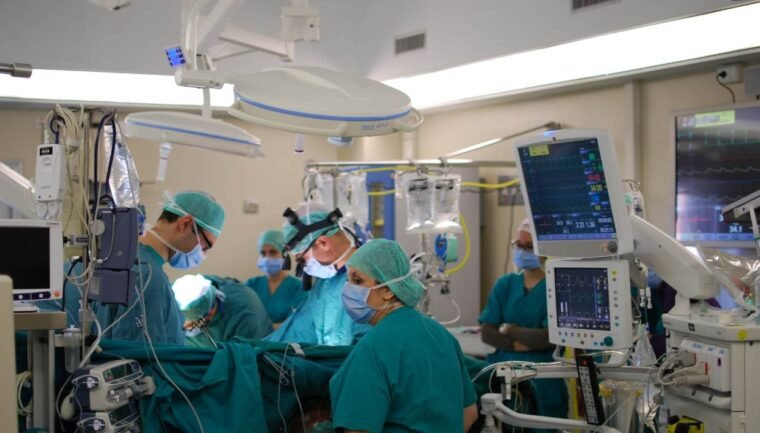Introduction
Going through surgery can be stressful and overwhelming, especially if it’s your first time. But proper preparation can help reduce anxiety, improve your recovery, and lower the chances of complications.
In this guide, we provide a detailed checklist from hospital experts to help you get ready for your surgery, whether it’s minor or major. Following these simple but essential steps will ensure a smooth experience from admission to recovery.
1. Understand Your Procedure
Talk to Your Doctor
- Ask your doctor to explain the surgery in simple terms.
- Understand the purpose of the surgery, possible risks, and expected outcomes.
- Ask about alternative treatments, if any.
Get Written Information
- Request brochures or printed details about the procedure.
- Learn about the hospital’s pre-op and post-op protocols.
Understanding your surgery can give you peace of mind and help you prepare mentally.
2. Manage Your Medical History
Share Accurate Health Details
- Provide a full medical history, including past surgeries, allergies, and chronic illnesses.
- Share the list of medications and supplements you’re currently taking.
Lab Tests and Investigations
- Complete all pre-surgery tests, such as blood tests, ECG, chest X-ray, etc.
- Visit any specialists (e.g., cardiologist or anesthesiologist) if referred.
This helps doctors decide if you’re fit for surgery and avoid complications.
3. Medication and Supplement Guidelines
Inform About All Medicines
- List all prescription drugs, over-the-counter medicines, and herbal supplements.
Adjust Medication Before Surgery
- Some drugs like blood thinners, aspirin, or diabetes medicines may need to be stopped or adjusted.
- Follow your doctor’s instructions carefully.
Incorrect medication use before surgery can lead to bleeding or delayed recovery.
4. Prepare Your Body
Eat Healthy
- Eat nutritious food in the days leading up to your surgery.
- Avoid junk food, sugary snacks, and alcohol.
Stay Hydrated
- Drink plenty of water unless your doctor tells you not to.
Quit Smoking and Alcohol
- Stop smoking at least 2 weeks before surgery to improve breathing and healing.
- Avoid alcohol 24–48 hours before surgery.
5. Fasting Before Surgery
Follow the Fasting Rule
- Do not eat or drink anything 6–8 hours before surgery, unless told otherwise.
- Some surgeries may allow clear fluids up to 2 hours before.
Not following this rule can result in surgery delays or increased anesthesia risks.
6. Arrange Transportation and Care
Have a Support System
- Arrange for a friend or family member to drive you home after surgery.
- If it’s a major surgery, arrange for someone to stay with you during recovery.
Post-Surgery Help
- You may need help with bathing, dressing, cooking, or going to the bathroom.
- Prepare your home for easy movement if mobility will be limited.
7. Pack Your Hospital Bag
Must-Have Items
- ID card and insurance documents
- List of medications
- Comfortable clothes
- Toiletries (toothbrush, soap, etc.)
- Slippers or non-slip shoes
- Phone charger and reading material
Avoid carrying expensive items or jewelry.
8. Know What to Expect on Surgery Day
Arrive Early
- Reach the hospital at least 2–3 hours before surgery time for check-in.
Final Checks
- You’ll meet the nurse, anesthesiologist, and surgeon.
- You may be asked to change into a hospital gown.
- A consent form will need to be signed.
Understanding the process reduces fear and helps you stay calm.
9. Prepare for Recovery
Plan for Healing Time
- Know how many days of rest or limited activity you’ll need.
- Get your leave from work or school approved in advance.
Pain Management
- Discuss pain relief options with your doctor.
- Have prescribed pain medications ready at home.
Follow-Up Appointments
- Book your post-surgery checkups before leaving the hospital.
10. Mental and Emotional Preparation
Stay Positive
- Focus on the benefits of the surgery.
- Practice deep breathing or meditation to manage anxiety.
Talk to Others
- Talk to someone who has had a similar surgery.
- Join online forums or support groups, if needed.
A calm and confident mind supports faster healing.
Bonus Tips from Hospital Experts
Cleanse Your Body
- Take a shower the night before and the morning of surgery using an antibacterial soap, if advised.
Remove Accessories
- Remove nail polish, jewelry, contact lenses, and makeup.
Inform About Dental Work
- Tell your doctor if you wear dentures, retainers, or have loose teeth, as these may affect breathing during surgery.
Common Mistakes to Avoid
- Eating or drinking past the fasting time.
- Not stopping blood thinners.
- Forgetting to bring ID or insurance documents.
- Wearing tight or complicated clothes.
- Coming alone to surgery without support.
Avoiding these mistakes can make your experience much smoother.
Conclusion
Surgery is a major life event, but being well-prepared can make it safer and less stressful. Use this expert-approved checklist to guide you every step of the way—from the moment your surgery is scheduled to your return home.
Taking care of your physical health, mental readiness, medications, and support system in advance will increase your chances of a successful surgery and smooth recovery.
If you’re unsure about anything, don’t hesitate to ask your doctor. When you’re informed and prepared, your confidence—and outcome—improves.
